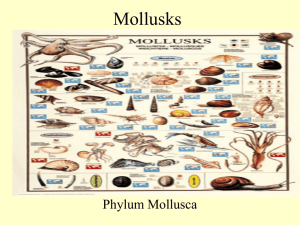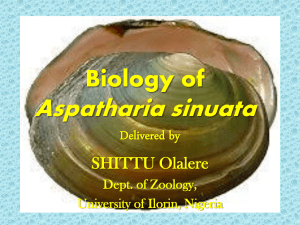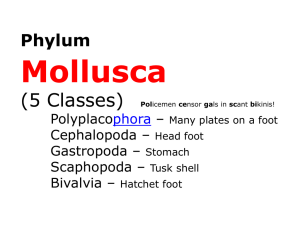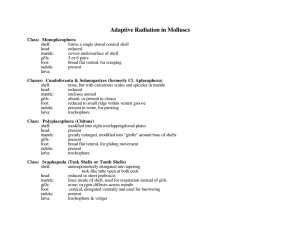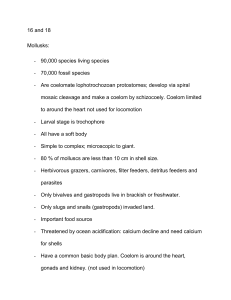Phylum Mollusca Worksheet: Gastropods, Bivalves, Cephalopods
advertisement
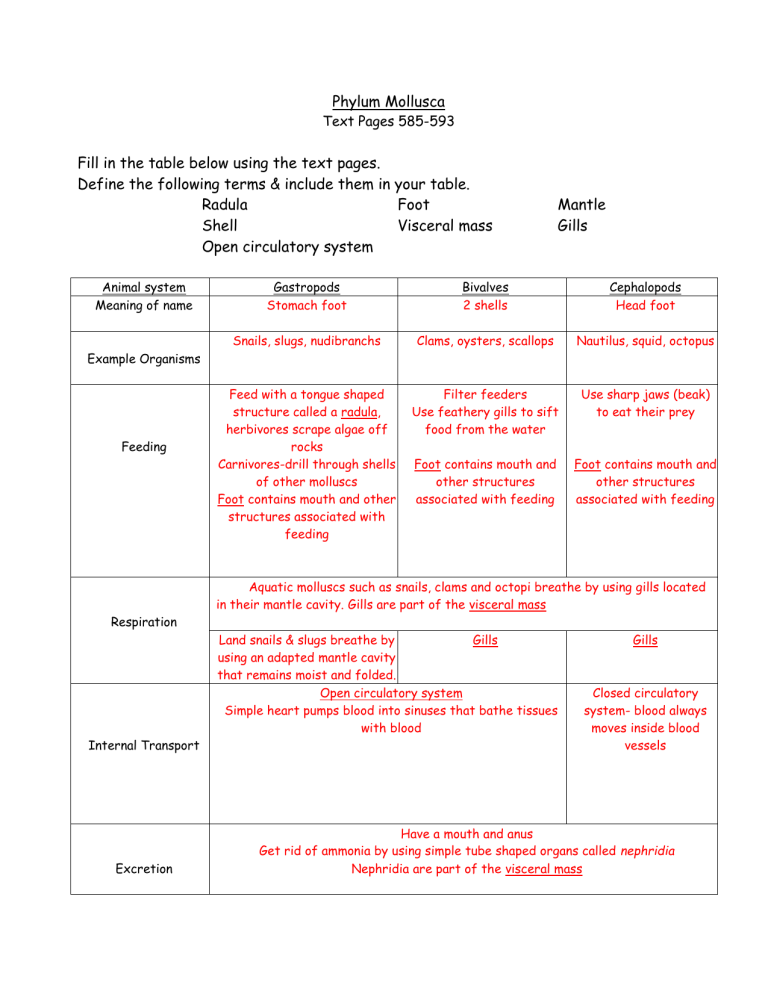
Phylum Mollusca Text Pages 585-593 Fill in the table below using the text pages. Define the following terms & include them in your table. Radula Foot Shell Visceral mass Open circulatory system Animal system Meaning of name Mantle Gills Gastropods Stomach foot Bivalves 2 shells Cephalopods Head foot Snails, slugs, nudibranchs Clams, oysters, scallops Nautilus, squid, octopus Feed with a tongue shaped structure called a radula, herbivores scrape algae off rocks Carnivores-drill through shells of other molluscs Foot contains mouth and other structures associated with feeding Filter feeders Use feathery gills to sift food from the water Use sharp jaws (beak) to eat their prey Foot contains mouth and other structures associated with feeding Foot contains mouth and other structures associated with feeding Example Organisms Feeding Aquatic molluscs such as snails, clams and octopi breathe by using gills located in their mantle cavity. Gills are part of the visceral mass Respiration Land snails & slugs breathe by Gills using an adapted mantle cavity that remains moist and folded. Open circulatory system Simple heart pumps blood into sinuses that bathe tissues with blood Internal Transport Excretion Gills Closed circulatory system- blood always moves inside blood vessels Have a mouth and anus Get rid of ammonia by using simple tube shaped organs called nephridia Nephridia are part of the visceral mass Animal system Gastropods Move and hunt Have a Brain Bivalves Inactive Burrow in mud Have a simple nervous system Cephalopods Brain is well developed and may be able to remember things Glide on mucus (Gross!) Or swim Sessile (although larvae can swim) Scallops can move by flapping shells Jet propulsion- force water through tube-like siphon Nervous Systems (response) Types of movement Sea hares – squirt ink Shells Move quickly Nudibranchs – have chemicals Can release dark Defence Mechanisms in their bodies that are Mantle is a tissue layer coloured ink to confuse poisonous or taste bad that covers a mollusks body predators Mantle is a delicate tissue like a cloak and secretes Camouflage layer that covers most of a CaCO3 which makes the mollusks body like a cloak. shell Male transfers a sperm Release sperm and egg into water. They find each other sac to the female and by chance and grow into free swimming larvae fertilization takes place Reproduction (trochophore larvae) when the eggs of the female mature. Reproductive organs are part of the visceral mass Reproductive organs are part of the visceral mass We eat them We eat them We eat them Get pearls from them Human uses for the animals One thousand oysters must be opened to find one pearl.
